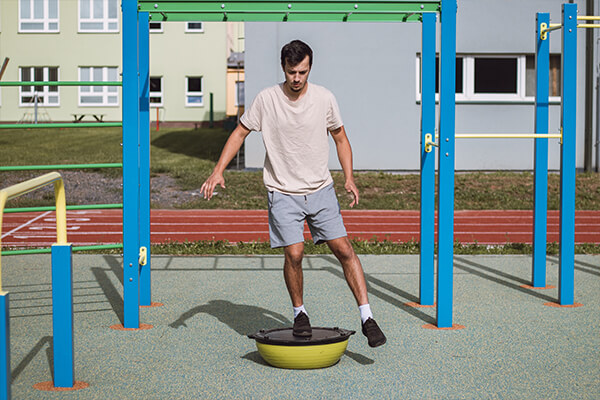

One-on-one evaluation with a treating doctor opens the opportunity for patients to communicate their symptoms and get efficient customized care.
Our onsite lab services ensure a quick and precise diagnosis of a patient’s current condition.
No need to wait hours for a consultation, examination, or noninvasive procedure.
Patients can leave the facility on the same day of their surgery without being hospitalized.
Our healthcare providers are very personable, so interactions remain free of fears or hesitations
Receive vestibular therapy onsite to address the most common imbalance issues with an onsite certified equilibrium therapist who can perform the Epley otolith repositioning exercises as well as provide a falls prevention program, in a private rehab center.
Occasional dizziness, light/heavy-headedness, or “floating/spinning” sensations are not inherently a cause for concern. But experiencing these traits with other symptoms, such as facial numbness, unconsciousness, or a slurred speech, requires immediate medical attention for a warning of stroke. Failing to obtain proper treatment could cause your condition to aggravate, impacting your daily activities and causing emotional and psychological complications.
At Michigan Neurology Associates & Pain Consultants, we follow a holistic and multi-specialty approach to diagnose and treat all your balance concerns with personalized care and attention. We are open every weekday (Monday to Friday) at both our Clinton Township & St. Clair Shores, MI locations to help you get the care you require.

Your brain works with gravity and other body parts to help you maintain your balance, including:
Your inner ear encompasses the vestibular system, which includes a maze of soft tissues and crystals attached to sensory hair cells that send signals to your brain whenever you perform a movement that involves tilting or turning your head. The vestibular Labyrinth maze contains a fluid, which moves as you move, creating the signal to your brain that communicates the direction of your head movements. If any part of your vestibular system weakens or becomes dysfunctional, your balance will be impacted, resulting in a balance disorder and possibly dangerous falls.
A balance disorder most commonly presents itself when you experience dizziness or feel like your body is floating or the room is spinning, despite you being grounded through either sitting, standing, or lying. This disorder may increase your risk of falling and tripping, resulting in contusions, complications of injuries, fractures, sprains, strains, etc.
You may develop a balance disorder as you age secondary to a single or a combination of effects
Immediately visit a vestibular specialist if your balance disorder causes the following symptoms:
First, we will review your medical history and your symptoms. We will then perform a thorough Neurologic examination that includes checking your hands and legs for weakness or sensory loss
For a more complete diagnosis, we may perform the following procedures:
Depending on your test results and symptoms, we may recommend any of the following treatment options to treat your balance disorders:
If you are looking for vestibular disorder treatment near you, contact us at Michigan Neurology Associates & Pain Consultants or schedule an appointment with us. We have board-certified physicians and state-of-the-art facilities for prompt testing and treatment.
Request an Appointment